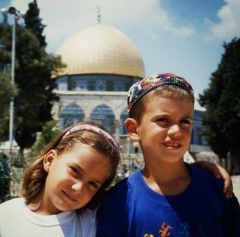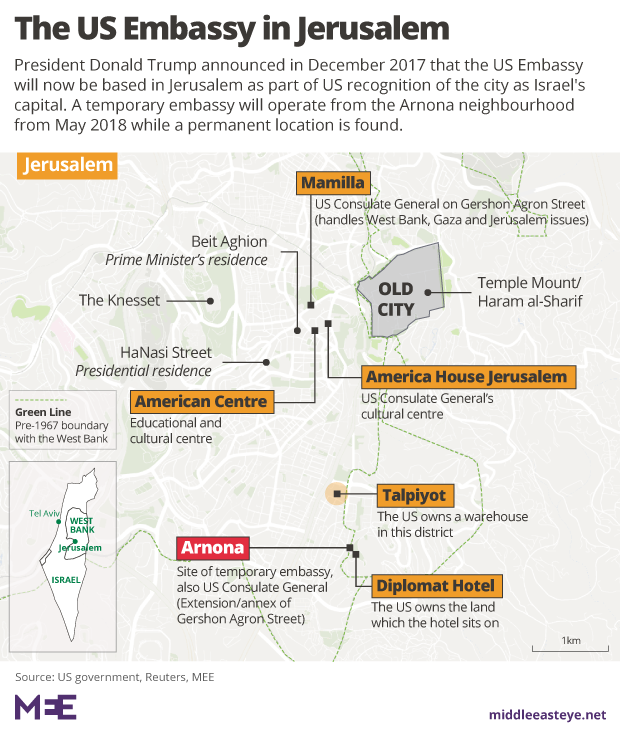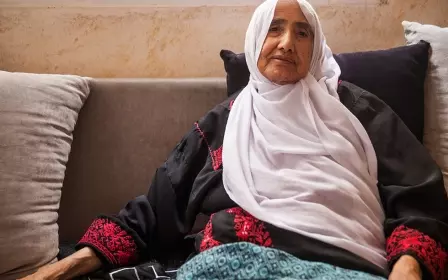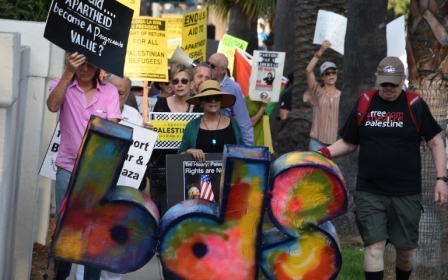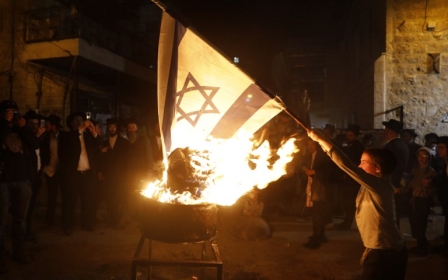Can Jerusalem still be saved?
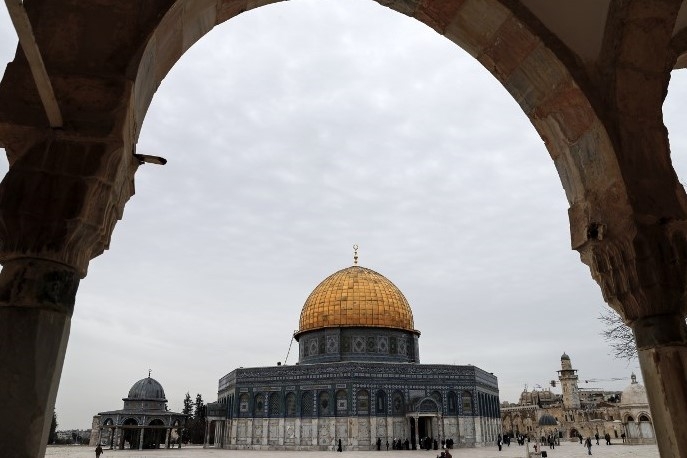
On Monday, the Trump administration will open a new US embassy to Israel in Jerusalem in a move that defies the international consensus and will likely have dire consequences for Palestinians who live in the city and beyond.
My earliest memories are of Jerusalem. We lived in East Jerusalem, in a neighbourhood which has since been cut in half by Israel's wall. Actually, the wall has been built right through the garden of my childhood home. Living in East Jerusalem from the late 1980s, I witnessed many events which shaped my memories.
From the First Intifada, with the imposed curfews and Israeli soldiers stationing themselves by our garden wall, to the 1991 Gulf War, when I remember my parents putting me in a gas-proof tent because as a toddler my face was too small for the gas masks.
Daily journeys were characterised by random checkpoints and I distinctly remember my parents arguing with soldiers who would arbitrarily close them and prevent Palestinians from passing through.
The Jerusalem life
But there are also good memories of friends and family. I loved my school, my music lessons and the summer camps. I loved being taken by my father to the Old City where we would eat kanafeh and visit the Haram Al Sharif. I loved Jerusalem - it was my entire world and I couldn't ever imagine leaving it.
When we did leave in 1999, I was heartbroken. Moving back some 14 years later I experienced living in the city as an adult and had to face many of the difficulties of Jerusalem life that my parents shielded me from as a child.
In 1967, the West Bank, Gaza and Golan Heights were occupied by Israel and placed under a military regime. Meanwhile, East Jerusalem was unilaterally annexed and has since faced a systematic attempt at de-Palestinianisation.
At the time of annexation, the Palestinian residents of Jerusalem were given the status of "permanent residents". This status gives them watered down rights where they receive some social benefits and services but are not allowed to vote in Israeli national elections.
East Jerusalemites also face a constant precarious situation in which they have to prove that their "circle of life" is within the city, or else risk their residency permits being revoked.
Trump's embassy move is not only emboldening Israel to continue and accelerate its Jerusalem's annexation project but it is also giving legitimacy to the narrative of exclusive Jewish ownership over the city
Indeed, since 1967 nearly 15,000 Palestinians in East Jerusalem have had their permanent residency status revoked. This form of forcible transfer amounts to a war crime and yet it is not the only one happening in the city. Huge swathes of Palestinian land have been taken to build Jewish-only settlements in violation of international law and longstanding official US policy.
There are now well over 200,000 Jew
Illegal actions
Israel has faced few consequences for its violations of international law in both Jerusalem and wider Palestine. Its illegal actions in Jerusalem were even given legitimacy in December last year, with US President Donald Trump's announcement that the US embassy in Tel Aviv will be moving to Jerusalem.
He also recognised the city as the capital of Israel, not only emboldening Israel to continue and accelerate its annexation project but also giving legitimacy to the narrative of exclusive Jewish ownership over the city.
With this new stamp of approval from the US, Israel will continue to demolish Palestinian homes, revoke Palestinian residencies and steal Palestinian land. It will give encouragement to groups such as the extremist Temple Mount Movement whicIn a cruel, symbolic gesture, the embassy will be inaugurated the day before Palestinians commemorate the Nakba. Rather than build a new site, the Trump administration has decided that for now the embassy will be located in one of their consular buildings in Jerusalem.
As if violating the international consensus was not enough, the building chosen lies within "no man's" land, which is located on internationally recognised occupied territory. What Jerusalem demonstrates par excellence, is that international law holds no weight if it cannot be enforced and if there are no consequences to violations.
Ghettoising spaces
Seventy years on from the Nakba and the situation in Palestine and for Palestinians is getting worse. In Jerusalem, the city of my most cherished childhood memories, Israel has consolidated its control by displacing Palestinians and ghettoising them into tiny spaces. It has torn apart communities with its separation wall, settlements and roadblocks.
It has destroyed much of the economic, cultural and political life of Palestinians in East Jerusalem. And it has made it absolutely clear that it has no intention of ceding any land back to the rightful owners.
Yet, there is still time for the international community to reverse the damage. However, it will require urgent, resolute action, including boycotts, divestment, sanctions, and arms embargoes against Israel.
In the absence of such concrete pressure, Israel will continue to violate the fundamental rights of the Palestinian people in Jerusalem and the rest of historic Palestine, with the full support and encouragement of the Trump administration.
- Yara Hawari is the Palestine Policy Fellow for Al Shabaka - The Palestinian Policy Network. She completed her PhD at the University of Exeter in Middle East politics and frequently writes for various media outlets.
The views expressed in this article belong to the author and do not necessarily reflect the editorial policy of Middle East Eye.
Photo: A picture taken on 15 February 2018 shows a view of the Dome of the Rock from inside Al-Aqsa mosque compound in Arab east Jerusalem (AFP)
New MEE newsletter: Jerusalem Dispatch
Sign up to get the latest insights and analysis on Israel-Palestine, alongside Turkey Unpacked and other MEE newsletters
Middle East Eye delivers independent and unrivalled coverage and analysis of the Middle East, North Africa and beyond. To learn more about republishing this content and the associated fees, please fill out this form. More about MEE can be found here.



